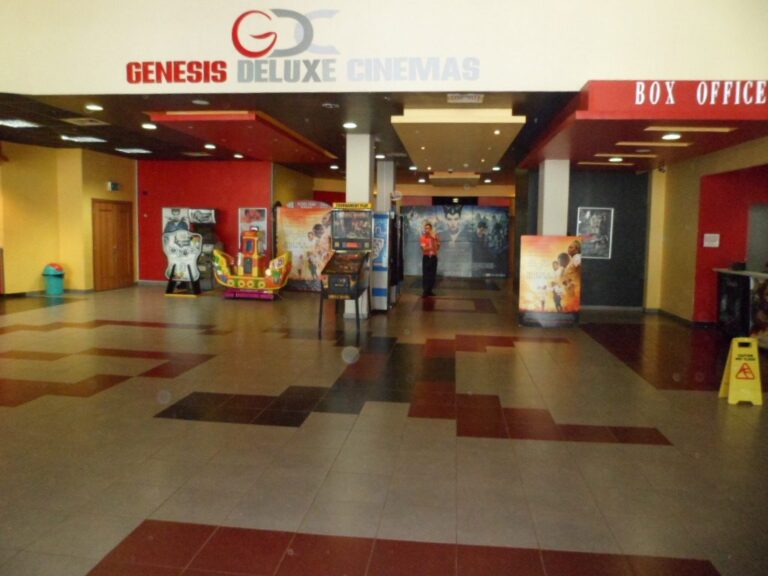Chimamanda Ngozi Adichie wrote an article titled “Nigeria Is Murdering Its Citizens”, which was published by the New York Times on Wednesday, October 21, 2020.
In the Op-Ed, she speaks on the recent happenings in Nigeria: the necessity of the #EndSARS movement, the peaceful protest, Nigeria’s political culture being “steeped in state-sponsored thuggery”, and the killings at Lekki toll gate.
“I think of their families brutally plunged into the terrible abyss of grief, made more terrible by the knowledge that their loved ones were killed by their country. And for what? Because they peacefully asked to be allowed to live”, she writes.
Here are excerpts from the article:
For years, the name SARS hung in the air here in Nigeria like a putrid fog. SARS, which stood for Special Anti-Robbery Squad, was supposed to be the elite Nigerian police unit dedicated to fighting crime, but it was really a moneymaking terror squad with no accountability. SARS was random, vicious, vilely extortionist. SARS officers would raid bars or stop buses on the road and arbitrarily arrest young men for such crimes as wearing their hair in dreadlocks, having tattoos, holding a nice phone or a laptop, driving a nice car. Then they would demand large amounts of money as “bail.”
SARS officers once arrested my cousin at a beer parlor because he arrived driving a Mercedes. They accused him of being an armed robber, ignored the work ID cards he showed them, took him to a station where they threatened to photograph him next to a gun and claim he was a robber, unless he paid them a large sum of money. My cousin is one of the fortunate few who could pay an amount large enough for SARS, and who was released. He is not one of the many tortured, or the many disappeared, like Chijioke Iloanya.
In 2012 Mr. Iloanya was 20 when SARS officers arrested him at a child dedication ceremony in Anambra State. He had committed no crime. His family tried to pay to have him released but were asked to bring more money than they had. So they sold their property to raise money and went back to the SARS office but Mr. Iloanya was no longer there. They have not seen him since. Photos of him on social media show a young man, still almost a child, with sensitive eyes and a future waiting for him. There are so many families like the Iloanyas who are caught between pain and hope, because their sons and brothers were arrested by SARS and they fear the worst, knowing the reputation of SARS, but still they dare to hope in the desperate way we humans do for those we love.
There have been End SARS protests, since 2016, but October 2020 was different, a tipping point had been reached. The protests signaled the overturning of convention — the protesters insisted on not having a central leadership, it was social rather than traditional media that documented the protests, and, in a country with firm class divisions, the protests cut across class. The protests were peaceful, insistently peaceful, consistently peaceful. They were organized mostly on social media by young Nigerians, born in the 1980s and 1990s, a disaffected generation with the courage to act. Their bravery is inspiring. They speak to hope and to the possibility of what Nigeria could become. Of those involved in the organization, none is more remarkable than a group called Feminist Coalition, set up by Nigerian feminists, who have raised more than $180,000, and have provided legal aid, security and food to protesters.
But the Nigerian government tried to disrupt their fund-raising. The Nigerian government has reportedly accused Flutterwave, the company through which the donation link was created, of accepting funds from terrorists, even though it is clear that Feminist Coalition’s members are not terrorists. Their fund-raising link suddenly stopped working. Still, they persisted and began to raise money through Bitcoin.
From the capital city of Abuja to the small town of Ogbomosho, state agents attacked and beat up protesters. The police killed a few and detained many others until social media and video evidence forced them to release some of the detained. Still, the protesters persisted.
The Lagos State government accused protesters of violence, but it defied common sense that a protest so consistently committed to peaceful means would suddenly turn around and become violent. Protesters know they have everything to lose in a country like Nigeria where the mere hint of violence gives free reign to murderous security forces. Nigeria’s political culture is steeped in state-sponsored thuggery. Politicians routinely hire thugs to cause chaos, especially during elections, and many people believed that thugs had been hired to compromise the protests. On social media, videos that attested to this — of thugs getting into SUVs that belonged to the government, of hardened and hungry young men admitting they were paid to join the protests and become violent. Still, the protesters persisted.
At about noon on Oct. 20, 2020, about two weeks into the protests, the Lagos State governor suddenly announced a curfew that would begin at 4 p.m., which gave people in a famously traffic-clogged state only a few hours to get home and hunker down. I feared that a curfew would provide an excuse for state violence, that in the name of restoring order, the army and police would unleash violence. Still, I was unprepared for the carnage that followed at the Lekki Toll Gate, the most prominent in Lagos. Government officials reportedly cut the security cameras, then cut off the bright floodlights, leaving only a darkness heavy with foreboding. The protesters were holding Nigerian flags, sitting on the ground, some kneeling, some singing the national anthem, peaceful and determined.
Read full article on New York times here

